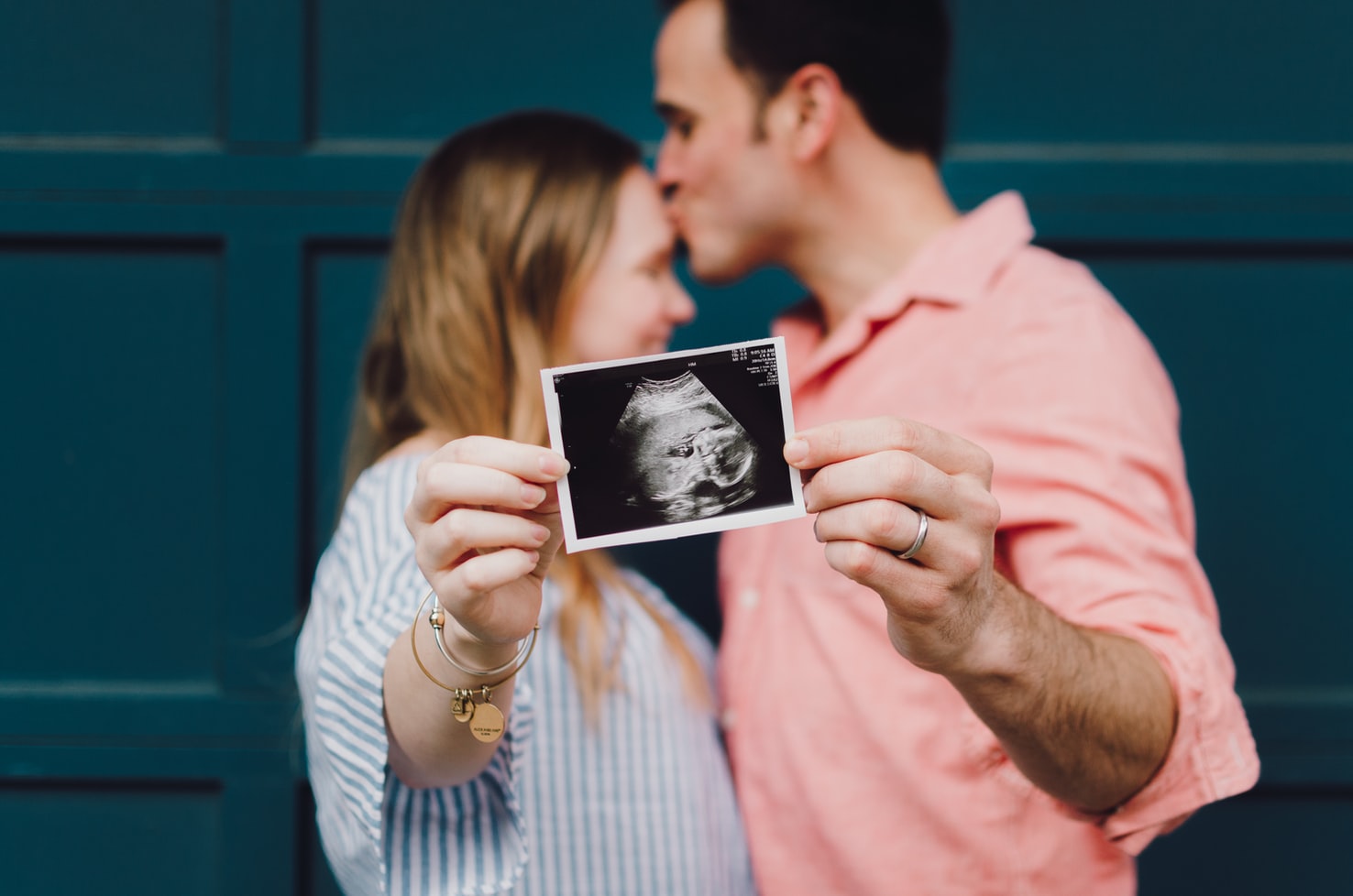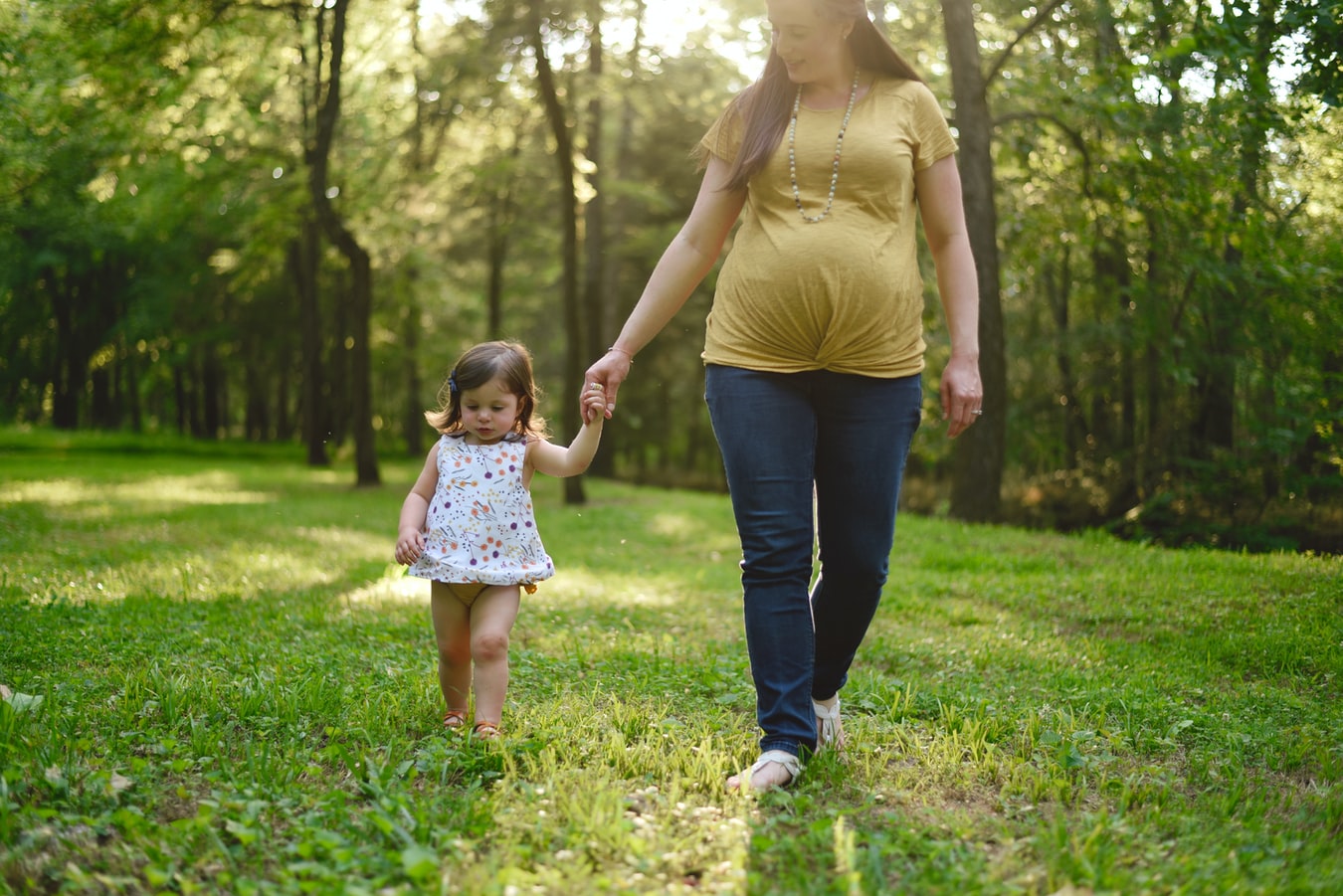Unusual Early Pregnancy Symptoms A Checklist
Uncover the extraordinary side of pregnancy with our unusual early pregnancy symptoms checklist. From unexpected cravings to fascinating body changes, prepare to be amazed. Discover lesser-known signs like unusual food cravings and scent aversions. Get ready to experience the unexpected. Gain knowledge, empowerment, and a deeper appreciation for your body’s marvels. Let us guide you and build a supportive community. Stay tuned as we reveal each symptom on our checklist. Join us on this incredible journey and embrace the extraordinary world of early pregnancy.
You Might Also Like:
- 5 Best Pregnancy Pillow
- Best Maternity Leggings
- 30 Best Pregnancy Hacks: A Mom’s Ultimate Guide
- 60 Best Pregnancy Announcement Shirts for Every Occasion
PMS vs. Pregnancy: How to Tell the Difference
Very early signs of pregnancy 1 week could be quite similar to signs of PMS. Here’s how to tell the difference.
Similarities:
The initial period of a pregnancy is tricky and it is difficult to say if one is experiencing hidden pregnancy signs or PMS. Both these conditions share some similar symptoms which are as follows:-
- Back and leg pain
- Migraine or headaches
- Mood changes like depression, anxiety, crying spells, and irritability.
- Constipation: This happens due to the change in the progesterone hormonal level.
- Breast tenderness and pain
- Increased urination
Differences:
- Bleeding: In the case of pregnancy, mild bleeding or spotting may occur in the early stages of pregnancy during the implantation of the embryo into the uterus.
- Fatigue: Fatigue of PMS disappears once the periods start while the lethargy of pregnancy can be long-term.
- Nausea: Vomiting or nausea is common in pregnancy but unlikely during PMS unless there is some medical complication.
- Food: Food craving or aversion can happen during periods though this will be a particular food or smell. PMS may see an increased appetite in general, again lasting for a few days only.
- Cramps: stomach and thigh cramps are common as signs of PMS while these are uncommon signs of pregnancy.
- This Transaction Is Valid For Anyone Who Wants It (Single, Twins, Triplets, etc.)
- Click Here To Launch Your Amazon Baby Registry
- Get A $35 Surprise Package For Parents And Babies
20 Unusual Early Pregnancy Symptoms A Checklist
Pregnancy comes with many symptoms and effects throughout the term. Read on below for unusual early pregnancy symptoms a checklist.
1. Metallic taste
What it is: Early undetected signs of pregnancy may include a metallic taste in the mouth. This condition is known as dysgeusia. It usually occurs during the first trimester of the pregnancy and disappears later.
Why it happens: This happens due to increased levels of the estrogen hormone in the body. It could also be caused by bleeding gums or the vomiting which comes with morning sickness.
What can help: Use peppermint toothpaste to brush your teeth. You could also try drinking mint tea or chewing gum or sucking on breath mints.
2. Increased sense of smell
What it is: One of the early signs of pregnancy before missed period is that your sense of smell may get heightened. It could be your body’s way to create an aversion to unhealthy things. This could also trigger nausea and retching in over-sensitive pregnant women.
Why it happens: The hormonal imbalance in the body, especially the increased level of estrogen is believed to be the cause of this.
What can help: There really isn’t much to do about this one except stay away from kitchens, garbage dumps, or any areas with strong smells which may make you sick.
3. All-day morning sickness
What it is: A wrenching feeling in the stomach, nausea, and vomiting define morning sickness, which is not always restricted to morning. It could make you feel sick all day.
Why it happens: Morning sickness can be caused by hormonal changes as well as spikes in blood sugar levels.
What can help: A high protein diet or snacking on nuts and dry fruits may help. Ginger tea or ginger in any form has anti-nausea properties too.
Sucking on lemon may also be helpful. If the morning sickness lasts all day, the doctor will prescribe you medication for the same.
4. Lightning vagina
What it is: You may feel sharp pangs of pain or pins and needles in your vagina. This usually happens towards the end of the third trimester.
Why it happens: Towards the end of the pregnancy, the baby moves downwards. Its head gets bigger and moves towards the lower abdomen. This puts pressure on the pelvis and the nerves in the area causing sudden pains and pinches.
What can help: Staying active and doing activities with hip movements can be helpful as this opens up the pelvis and gives the baby a little more space. However, if these pains are happening more than five times in 60 minutes, it could be preterm labor.
5. Bizarre Cravings
What it is: A pregnant woman could crave to eat the most bizarre things. This condition is called pica, which refers to a craving for things with little or zero nutritional value. These could include chalk, mothballs, cigarette ash, wall plaster, charcoal dirt, and many such.
Why it happens: Although there is no validated proof, scientists believe pica happens due to the lack of certain vitamins and minerals in the body.
What can help: Eating these things could be unhealthy for both you and the baby. Speak to your doctor who may prescribe some iron or calcium supplements to curb the cravings. Also, try chewing some gum when the craving strikes.
6. Stuffy/runny nose and vaginal discharge
What it is: This is called pregnancy rhinitis and is basically a feeling of a cold or allergy at all times. The nose is runny, blocked, or sneezy all the time. Vaginal discharge during pregnancy is called leucorrhea.
Why it happens: During pregnancy, there is more blood flow to the mucus membranes in areas like the nose, mouth, and vagina. This triggers the condition. Vaginal discharge is caused by the increased level of estrogen hormone.
What can help: Nose strips, saline nose sprays, and cool mist humidifiers can help open up the nasal passage and keep it moisturized to reduce irritation. In case you are experiencing breathing trouble, please consult a doctor immediately. Use panty liners for vaginal discharge. Make sure it is not yellow or itchy, which could indicate an infection.
7. Bleeding gums and nose
What it is: Your gums may bleed easily, especially when you are brushing, when you are pregnant. The condition is called pregnancy gingivitis. The nose may bleed often too.
Why it happens: This could be caused due to increased blood flow to your body parts including your gums and sinuses. The changing body conditions could also make you more prone to bacterial infections.
What can help: Take care of your teeth and gums with proper dental hygiene and a regimented dental care routine. Use an ice pack for a bleeding nose.
8. Breast-leak
What it is: In this unusual early pregnancy symptoms a checklist, breast-leak ranks towards the end of the pregnancy. The breasts swell up and start producing milk, which starts leaking out.
Why it happens: Due to the hormonal changes, the body is preparing itself to produce breast milk for the baby. Although this does not happen to many women before the baby is born, it does not affect breastfeeding later.
What can help: Carry breast pads to avoid embarrassing situations. There is no way to stop this really but unless there is blood discharge, there is nothing to worry about.
9. Altered sex drive
What it is: Your sex drive may suddenly increase or decrease during pregnancy.
Why it happens: Fluctuating hormones have an effect on your libido. Pregnancy causes nausea, exhaustion, and back pain which may decrease your sexual drive. Alternately, increased blood flow to the pelvis can increase the sexual drive and increased vaginal lubrication can provide better pleasure.
What can help: Listen to your body and go with the flow. If it wants to rest, then sleep. Unless otherwise advised by your doctor to stay away from sex, the act could actually help in the healthy progress of the pregnancy.
10. Constipation
What it is: Pregnancy may cause a difficult or hard bowel movement.
Why it happens: A supplement of iron is usually prescribed during pregnancy which can cause constipation. Also, hormonal changes slow down everything in the digestive tract causing hard bowels.
What can help: Increase your water intake to 10-12 cups of fluid a day. Increase fiber in your diet with fruits, vegetables, prunes, bran, and cereals.
Exercise is also helpful.
11. Mood swings
What it is: From extreme joy to bouts of crying, mood swings are common during pregnancy.
Why it happens: Hormonal changes along with the anticipation of a child, the physical changes in the body, and the other troubling symptoms of pregnancy, all contribute to these mood swings.
What can help: Meditation, deep breathing, and talking to your partner, family and friends can help a great deal.
12. Drooling
What it is: This causes an increase in saliva secretion. The condition is called Ptyalism, or hypersalivation. This generally resolves by itself by the end of the first trimester.
Why it happens: This can be a counter-reaction to all nausea and vomiting. The pregnancy hormone could also activate saliva glands more often.
What can help: Concentrate on dental care. Chew sugarless gum or suck on some candy.
13. Acne, moles, and darkened complexion
What it is: Acne during pregnancy is very common and it is not only restricted to the face. You could get breakouts on your belly and back too. Chloasma or melasma is a term given for patches of dark skin and asymmetrical complexion during pregnancy.
Why it happens: The unheard-of pregnancy symptoms happen when hormone surges disbalance your metabolism and skin pH levels, causing dryness, excessive oil excretion, and breakouts. The discoloration happens due to increased blood flow in the body.
What can help: Do not pick the pimples as they could cause scars. Allow them to heal on their own. The skin discoloration will also clear out with time. Visit a dermatologist for some acne cream, informing them you are pregnant.
14. Hot flashes and sweating
What it is: It feels like menopause has started but feeling excessively hot or experiencing hot flashes is common during the third trimester.
Why it happens: The hormonal changes as well as increased blood flow to the body, cause these odd pregnancy symptoms. The body is also working double and overtime while carrying the extra weight of the baby inside. The internal energy flow causes excessive heat and sweating.
What can help: Drink lots of water, wear comfortable cotton loose clothes and keep the temperature of the room cool.
15. Varicose and spider veins
What it is: Visible blue veins from under the skin are called varicose veins. Small dilated blood vessels which look like spiders are called spider veins. During the latter stage of pregnancy, these may appear on the legs, neck, face, and chest.
Why it happens: Increased volume of blood and a slower rate of blood movement cause these symptoms. These usually disappear after giving birth.
What can help: Your doctor or a vein expert can help you. Also, try to keep your feet up and rest as much as possible.
16. Headaches
What it is: Amongst the rare pregnancy symptoms is also regular, nagging headaches.
Why it happens: An estrogen level increase can cause headaches. Although this decreases in the final trimester, if it continues past 20 weeks, it could be a sign of pre-eclampsia.
What can help: See a doctor immediately if the headache is severe and causing and there is flashing or blurring of vision.
17. Bloating and farting
What it is: A few more strange early pregnancy symptoms are farting and a feeling of bloatedness.
Why it happens: The changing levels of hormones can cause the wind to get trapped in the body. Progesterone causes muscle relaxation which disables the intestines to release gas effectively. This causes bloating, flatulence and burping.
What can help: Avoid foods which cause excess gas and increase intake of fibers. An antacid or digestive medicine or herbal concoction should also help.
18. Wobbling teeth
What it is: Wobbling teeth fall among the unusual pregnancy symptoms.
Why it happens: Hormonal changes increase acidity levels in the body. The muscles and ligaments of the mouth also relax causing teeth to wobble but it is unlikely that they will fall out.
What can help: Good dental care and calcium-rich food can help.
19. Burning breasts, hurting ribs, and breathlessness
What it is: Pregnant women may feel a pain in the ribs and a tingling or burning sensation in the breasts, along with some amount of breathlessness, especially during the third trimester.
Why it happens: As the baby grows inside the womb, it needs more space and starts pushing against the rib cage, breast, and lungs. It also starts kicking and moving around inside which causes the above symptoms.
What can help: The pain is otherwise harmless and will reduce once the baby moves downwards. Rest as much as possible. a warm heat pad may give some relief.
20. Increased sense of urination
What it is: You will feel like peeing at infrequent intervals.
Why it happens: There is increased blood flow to the kidneys due to the hormonal changes in the body. The kidneys need to filter more blood now, therefore, producing 25% more urine than normal.
What can help: There isn’t much to do about this but frequent visits to the toilet may also indicate a urine infection. So do consult a doctor if there is irritation and a burning sensation.
How Is Pregnancy Diagnosed?
The most common sign of pregnancy is a missed period. This is usually taken into consideration at least 7 to 10 days after the normal 28-day cycle. A positive pregnancy result is determined by the presence of human chorionic gonadotropin (hCG) in maternal urine and serum.
Here are some ways to correctly diagnose a pregnancy.
Urine test:
- Dipstick test: Use the first-morning urine for maximum HCG level. Insert the dipstick into the urine sample, and hold the stick horizontally. In case of a positive result, both the control line and test line will be pink.
- Agglutination test: This test checks for antigens and antibodies and detects the prevention of agglutination of latex particles coated with HCG. This test called Gravindex is done in a laboratory with a urine sample.
- Enzyme test: This simple rapid test detects low levels of HCG in the urine.
Blood tests
Quantitative or qualitative blood tests determine the exact amount of hCG in the blood. This can detect pregnancy within six to eight days after ovulation.
How Soon Will A Pregnancy Test Read Positive?
A highly sensitive home pregnancy test can determine positive pregnancy 7 days after ovulation. It can detect hCG levels of 10 mIU/mL or lower. But some women don’t get a positive result till 10 to 14 days after ovulation. If you test too early, you may get a negative result even though you’re pregnant. This is because the hCG level might be too low to be registered. Post negative results, if you are still facing early undetected signs of pregnancy, make sure to take the test again with the first-morning urine, in a few days.
Frequently Asked Questions
1. How does your lower stomach feel in early pregnancy?
In early pregnancy women often feel cramps in the uterine area. These could feel like a pricking pain on one side of the stomach or like period cramps. This is because the uterus is growing and stretching and is actually a sign of a healthy pregnancy.
2. What are the earliest pregnancy symptoms before a positive test?
Missed periods, stomach cramps, spotting, smell sensitivity, aversion to certain foods, breast changes, dizziness, nausea, fatigue, and frequent urination could be some early signs before testing positive for pregnancy.
3. Are you dry or wet in early pregnancy?
You usually feel more wetness during the early stages of pregnancy. You may also see dry yellow-white vaginal discharge in your underwear.
4. Does sneezing a lot mean I’m pregnant?
Some women sneeze a lot during pregnancy. The condition is called pregnancy rhinitis, caused by nasal congestion. But sneezing a lot without any other symptoms does not necessarily mean you are pregnant.
5. Is having weird dreams a sign of early pregnancy?
Yes, early pregnancy and hormonal changes can cause weird dreams. Hormones impact emotions and anxiety and how the brain processes information. This could result in vivid and strange dreams and better recall.
Conclusion
Unusual early pregnancy symptoms a checklist will help you recognize the difference between PMS and pregnancy and also be aware of what symptoms you may experience and whether they are normal or not.
>>> Check here to read more posts about pregnancy.
- 8 Best Power Wheels For Kid of 2024 - October 10, 2023
- 30 Best Pregnancy Hacks: A Mom’s Ultimate Guide - June 3, 2023
- Best Diaper Pail Deodorizer Picks of 2024 - May 28, 2023








